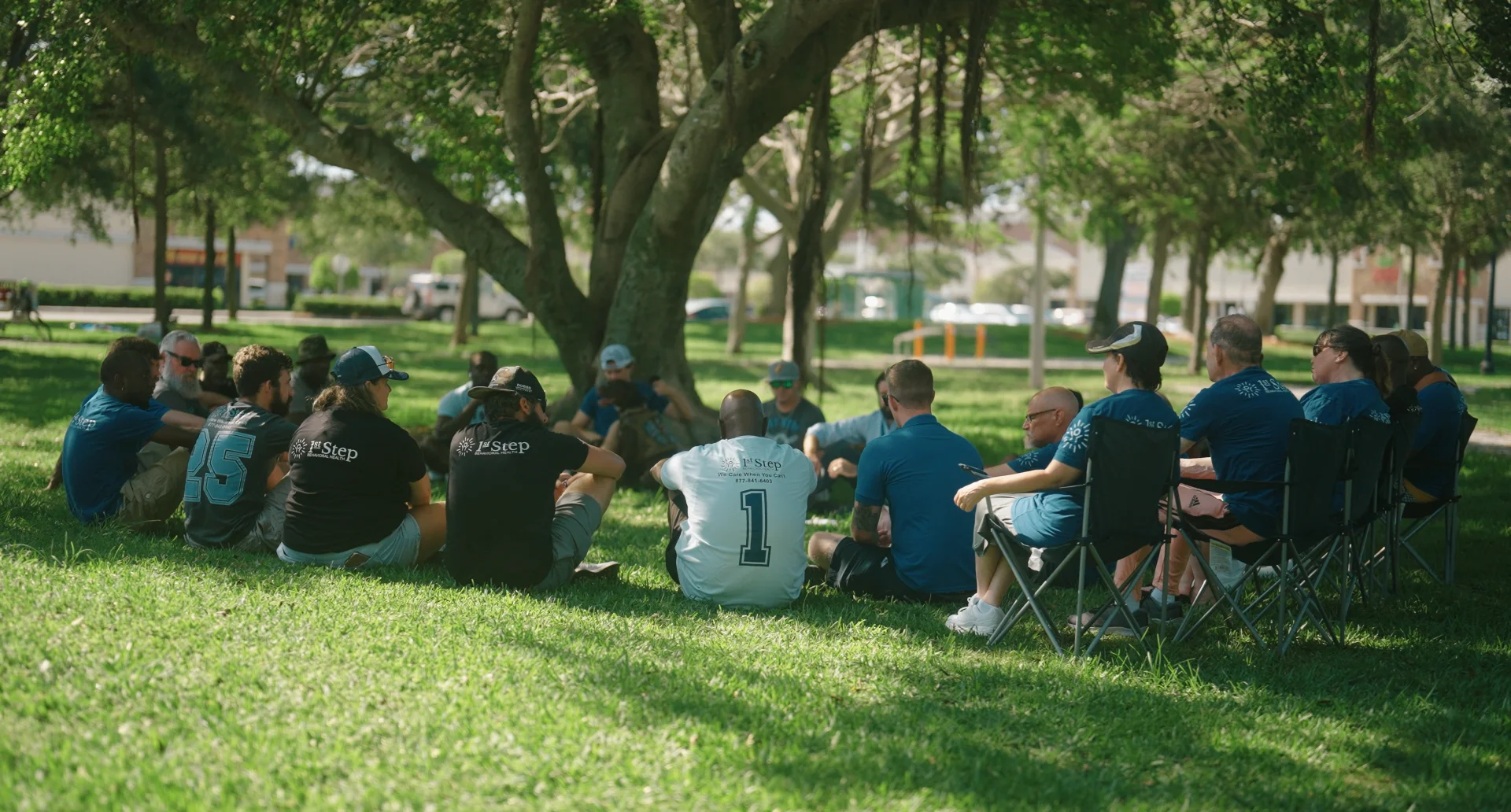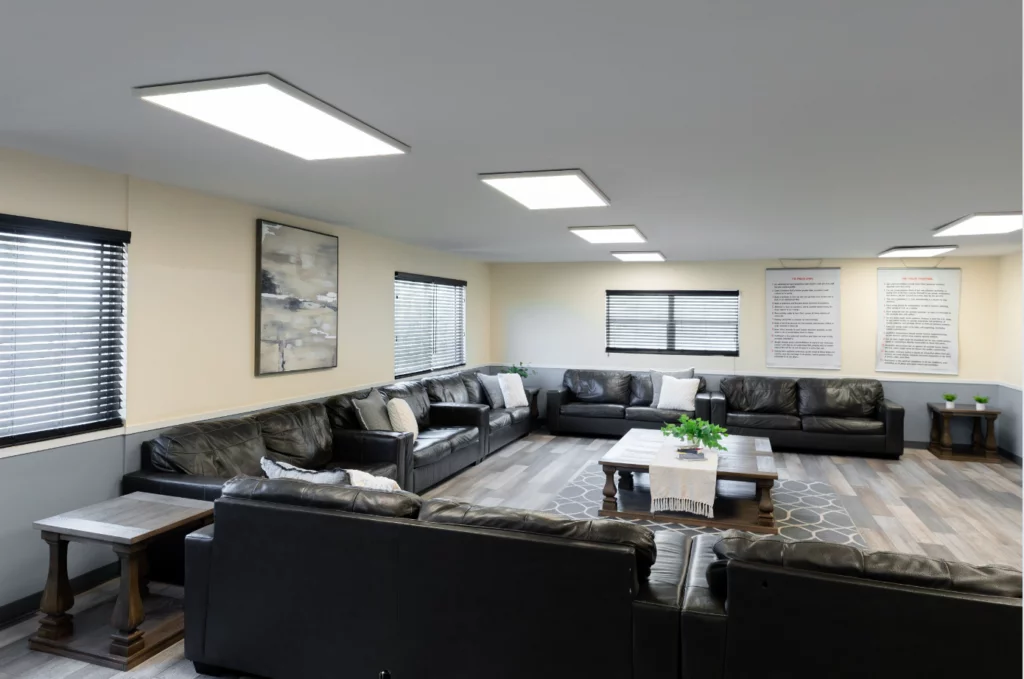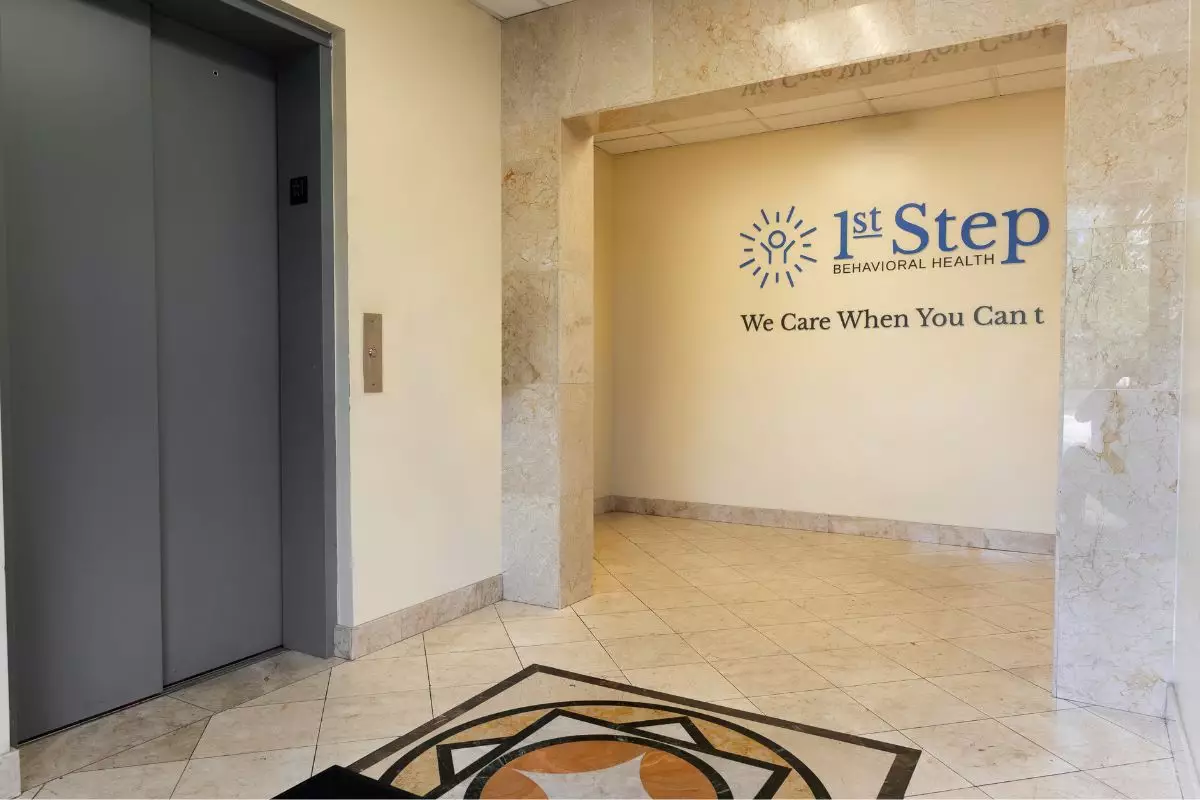Partial Hospitalization Program (PHP)
If you’re seeking addiction treatment, it’s important to understand the different types of treatment programs available to you. At 1st Step Behavioral Health, our team can assess your situation and help you determine whether or not our Pompano Beach PHP is the right addiction treatment program for you.


What is a Partial Hospitalization Program (PHP)?
Partial hospitalization programs (PHP) are an effective way to continue addiction treatment after completing a higher level of care such as detox or residential treatment. PHP can also be an excellent option for those who are unable to commit to an inpatient rehab program because of work, school, or family reasons.
A Partial Hospitalization Program (PHP) is a structured and intensive mental health treatment option designed for individuals who require more support than traditional outpatient care but do not need round-the-clock supervision provided by inpatient hospitalization. PHPs offer a higher level of care than standard outpatient therapy but are less restrictive than full inpatient hospitalization.
At 1st Step, our South Florida PHP offers individuals the resources and skills they need in order to break free from addiction and overcome its effects on their lives.
What to Expect at Our Pompano Beach Partial Hospitalization Program (PHP)
Most PHP clients live in our community housing. Our community housing features beautifully designed apartment-style residences that offer a semi-private living experience in Pompano Beach, Florida. This level of care is typically chosen by clients who are transitioning from an inpatient or residential program. It maintains a strong foundation of structure and support while also encouraging more interaction within the community.
Throughout the program, clients continue to have access to medical professionals, including nurse practitioners, doctors, and psychiatrists. They receive comprehensive medical management services. In addition, clients engage in therapeutic group sessions, take part in group activities, and work on developing a personalized aftercare plan tailored to their needs.
Our PHP places an emphasis on fostering connections with others in recovery. We actively encourage clients to engage with their families, peers, and fellow community members throughout their journey to recovery. We arrange a variety of activities and offer transportation to meetings and events, all contributing to the process of overcoming substance abuse.
Rediscovering the ability to nurture meaningful relationships with loved ones and forming new connections with others on the path to recovery are fundamental aspects of our approach. The friendships formed through fellowship, therapy sessions, and participation in 12-step groups create an invaluable support network that plays a pivotal role in the healing journey of our individuals in care.
An Evidence-Based, Individualized Approach
Our partial hospitalization program relies on effective, research-backed therapy designed specifically for beating drug and alcohol addiction. Clients in our Florida PHP get special therapy that’s customized for them, both one-on-one and in group settings. Our caring team of professionals uses different methods like adjusting attitudes, addressing emotions, hands-on experiences, role-playing, and therapy tailored for trauma.
But we don’t just focus on the individual – we involve families too. We want family members and loved ones to take part in therapy sessions and group activities. This helps families support their loved ones better and also brings healing to the family itself.
The combination of family support and building positive relationships is crucial for long-lasting recovery and a healthy life.
Often, people starting their journey to recovery realize that their strongest relationship is with the addictive substance. But by understanding the reasons behind their addictive behavior and restoring relationships, they can transform their lives.
People in our PHP for drugs and alcohol have the chance to improve their ability to build important relationships and work toward their goals. This leads to positive changes happening during treatment. As we peel away the layers of addiction and the reasons behind substance abuse, people can see a real difference in their lives, and they start believing in the possibility of lasting change.
Addressing Mental Health Concerns During PHP
Those who are struggling with substance use problems often experience feelings of desperation, hopelessness, helplessness, and loneliness, and it can be difficult for individuals to fully understand what is going on in their lives. Oftentimes, emotional issues and substance abuse are symptoms of a bigger problem–a mental health problem that needs treatment.
At 1st Step, we are a dual diagnosis treatment provider that treats both addiction and mental health at the same time. Our South Florida PHP program can address your mental health issues while guiding you on your recovery journey.

Benefits of a Partial Hospitalization Program (PHP)
In terms of levels of care, PHP lies right between inpatient hospitalization and outpatient treatment The benefits of a partial hospitalization program include components of both forms of treatment, such as:
- Structured, intensive therapy – PHPs provide a structured treatment environment where individuals attend therapy sessions and activities for a significant portion of the day, typically five days a week for several hours each day. Participants in PHPs engage in various therapeutic activities, which may include individual therapy, group therapy, family therapy, psychoeducation, skills training, and other evidence-based interventions.
- Expanded access to medical care – Depending on the individual’s needs, medical and psychiatric evaluations may be part of the program to ensure proper medication management and any necessary medical interventions.
- Consistent mental health care – PHPs often focus on specific mental health issues, such as mood disorders, anxiety disorders, substance abuse, and more. The treatment plan is tailored to each individual’s needs and diagnosis.
- Routine meetings and a supportive environment – PHPs offer a supportive and therapeutic environment where individuals can work on their mental health challenges, learn coping skills, and receive guidance from mental health professionals.
- Continuity of care – PHPs aim to help individuals transition back to more independent living while still receiving the necessary therapeutic support. This can help prevent relapse and provide a smoother reintegration into daily life.
PHP Rehab programs help you build a skillset to smoothly transition into society. No matter how lost you feel, with the right tools you’ll see amazing improvement. The learning tools you develop in rehab will carry on for years after, preventing relapse or outside triggers.
Is a Partial Hospitalization Program (PHP) Right For You
Our Pompano Beach partial hospitalization programs are most beneficial for those who:
- Show the desire and willingness to actively participate in therapy
- Finished the detox process
- Are transitioning from residential treatment or from inpatient hospitalization
- Have stability in regard to their housing, social support, and community
- Need intensive therapy, but do not meet criteria for inpatient hospitalization
- Require medical follow-up, but don’t have severe medical treatment needs
- Have a co-occurring addiction and mental health condition

Learn More About Our Partial Hospitalization Program (PHP)
If you are struggling with a substance abuse disorder or you might know someone else who is, please know that you don’t have to face addiction alone. There is hope for you and your family.
If you have any questions or concerns regarding treatment and recovery, we’re here to answer your questions. Or if you want to speak with someone about beginning the journey to recovery, we encourage you to call today for more information. Contact us here or call or text (855) 425-4846 today to get started.
